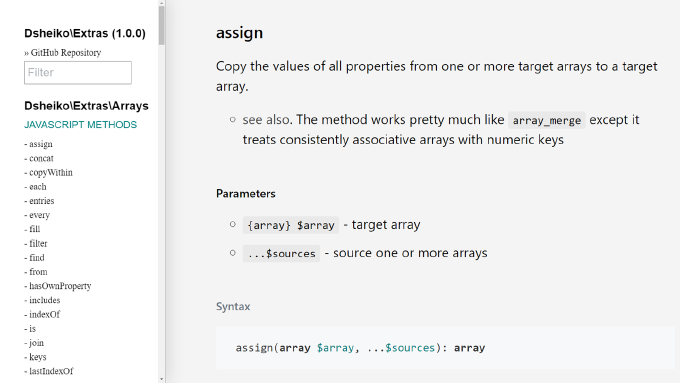Optimizing Your Dev Workflow with Webpack 3

I’ve been working with PHP since 2000 and with JavaScript even longer. Over last decade JavaScript evolved drastically. It had a promising design from the very beginning and gained its current incredible shape with the shift to ES2015 (Harmony). PHP though didn’t change that much. Apparently it’s doomed always to suffer from its own legacy. It arrived in middle 90s as a simple CGI app to maintain Rasmus Lerdorf’s home page and have been more like spontaneously developing ever since. That resulted in syntax inconsistency, mix of functional and OOP-based assets, and absence of a decent language specification. So every time I switch to PHP I’m missing rationality, predictability and flexibility of JavaScript. This made me consider a library, which would bring JavaScript-like development experience to PHP. Eventually I came up with Extras, which extends PHP types with JavaScript (besides with Underscore) methods, unlocks chaining and introduces PlainObject type representing object-literal.



